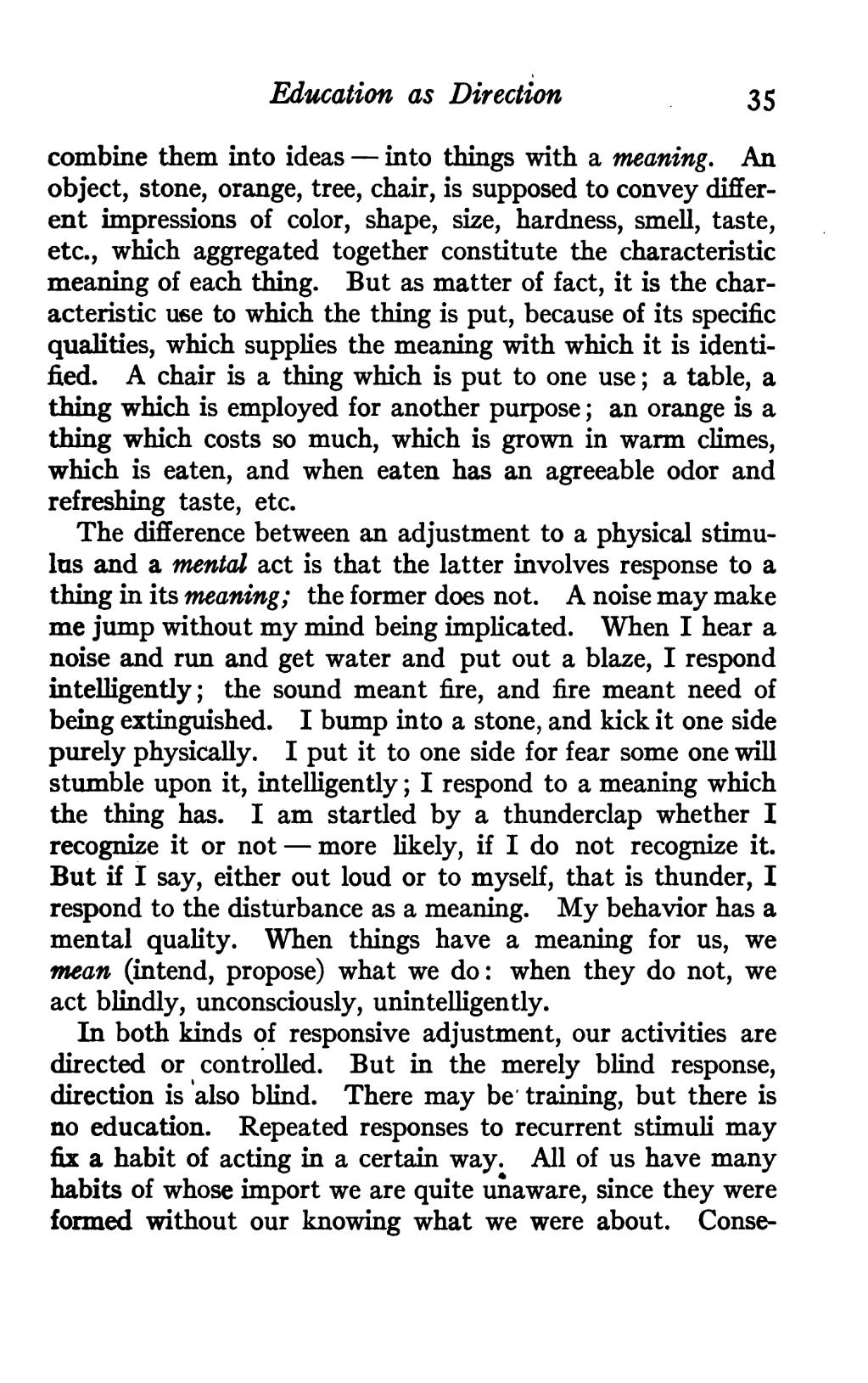combine them into ideas—into things with a meaning. An object, stone, orange, tree, chair, is supposed to convey different impressions of color, shape, size, hardness, smell, taste, etc., which aggregated together constitute the characteristic meaning of each thing. But as matter of fact, it is the characteristic use to which the thing is put, because of its specific qualities, which supplies the meaning with which it is identified. A chair is a thing which is put to one use; a table, a thing which is employed for another purpose; an orange is a thing which costs so much, which is grown in warm climes, which is eaten, and when eaten has an agreeable odor and refreshing taste, etc.
The difference between an adjustment to a physical stimulus and a mental act is that the latter involves response to a thing in its meaning; the former does not. A noise may make me jump without my mind being implicated. When I hear a noise and run and get water and put out a blaze, I respond intelligently; the sound meant fire, and fire meant need of being extinguished. I bump into a stone, and kick it one side purely physically. I put it to one side for fear some one will stumble upon it, intelligently; I respond to a meaning which the thing has. I am startled by a thunderclap whether I recognize it or not—more likely, if I do not recognize it. But if I say, either out loud or to myself, that is thunder, I respond to the disturbance as a meaning. My behavior has a mental quality. When things have a meaning for us, we mean (intend, propose) what we do: when they do not, we act blindly, unconsciously, unintelligently.
In both kinds of responsive adjustment, our activities are directed or controlled. But in the merely blind response, direction is also blind. There may be training, but there is no education. Repeated responses to recurrent stimuli may fix a habit of acting in a certain way. All of us have many habits of whose import we are quite unaware, since they were formed without our knowing what we were about. Conse-
